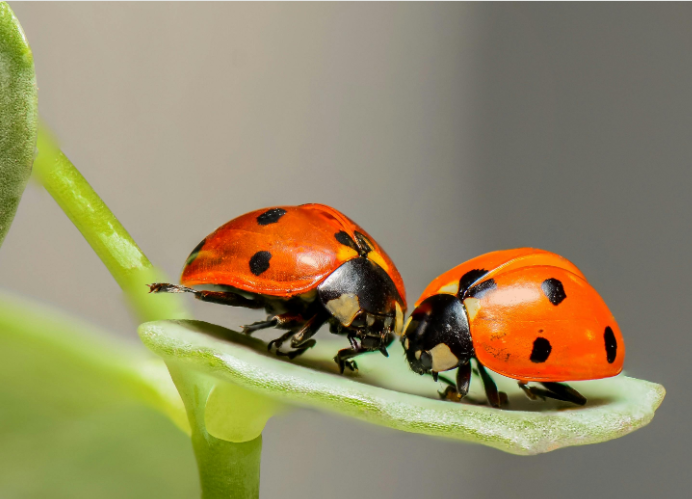Could the secret to better sleep be living inside your gut? Scientists are beginning to uncover a fascinating and complex relationship between the human microbiome and sleep one that could revolutionize how we understand rest, mood, and overall health.
Recent advances in microbiome research suggest that the trillions of microbes residing in the digestive tract are not just silent passengers. These microscopic organisms may actively influence sleep patterns by communicating with the brain and regulating key hormones and neurotransmitters involved in the sleep cycle.
While the idea of microbes affecting brain function may sound like science fiction, the evidence is mounting. A growing body of research points to the gut brain axis a complex communication network linking the gastrointestinal system with the central nervous system as a powerful conduit through which gut bacteria can influence sleep, mood, and cognition.
Microbial Messengers and the Brain
Many of the body’s most important chemicals related to sleep are either directly produced or significantly influenced by gut microbes. For example, serotonin, a neurotransmitter that plays a central role in sleep regulation and mood balance, is largely synthesized in the gastrointestinal tract. Gut bacteria help produce and modulate the availability of serotonin, as well as other key compounds such as dopamine and gamma aminobutyric acid, or GABA.
These compounds do not remain confined to the gut. Through the vagus nerve and other pathways, they transmit signals to the brain, influencing sleep onset, duration, and depth. Disruptions in the microbiom caused by factors such as stress, illness, antibiotic use, or poor diet can therefore have ripple effects that reach all the way to the brain.
Dr Miriam Zhao, a neurobiologist and researcher at the Sleep and Circadian Neuroscience Institute, explains, “We are now beginning to understand that your gut bacteria are not just supporting digestion. They are also interacting with the nervous system and influencing when and how well you sleep.”
From Mice to Humans: Tracing the Sleep Microbiome Link
Animal studies have offered compelling insights. In several experiments, researchers found that mice with depleted or imbalanced gut microbiota displayed noticeable changes in their sleep behavior. These mice experienced shorter sleep cycles, more frequent waking, and signs of increased stress.
Conversely, when researchers restored microbial diversity often by reintroducing beneficial bacteria through probiotics or diet sleep patterns in the animals improved.
Human research, though still in its early stages, is following a similar trajectory. In one clinical trial, adults who consumed a probiotic rich diet for eight weeks reported not only improved sleep quality but also reduced symptoms of anxiety and daytime fatigue. Functional MRI scans conducted during the study showed changes in brain activity associated with improved emotional regulation and restfulness.
A New Frontier for Sleep Therapy
Although the science is still evolving, the implications for health care and sleep medicine are significant. Traditionally, treatments for insomnia or poor sleep have focused on cognitive behavioral therapy, pharmaceutical interventions, or lifestyle adjustments such as reducing screen time or establishing consistent sleep routines.
Now, some researchers are advocating for a fourth pillar of sleep health: microbiome modulation.
“This is potentially the beginning of a major shift in how we understand sleep disorders,” says Dr Zhao. “Rather than treating symptoms in isolation, we may soon look at the microbiome as a core factor something that can be assessed and treated to improve overall sleep health.”
The idea of a personalized probiotic prescription tailored to a patient’s unique microbiome profile is gaining traction. In the future, your sleep aid might not come in the form of a sleeping pill, but in the form of a scientifically formulated supplement designed to rebalance your gut flora.
How Diet Shapes the Gut Sleep Connection
Diet is one of the most powerful tools for influencing the gut microbiome. Diets rich in fiber, fermented foods, and prebiotics encourage microbial diversity, which has been linked to more stable sleep cycles and better immune function.
Fermented products such as yogurt, kefir, miso, sauerkraut, and kimchi can increase the abundance of beneficial bacteria. Meanwhile, whole grains, fruits, and vegetables provide essential prebiotic fibers that feed those bacteria.
On the other hand, diets high in refined sugar, processed foods, artificial sweeteners, and alcohol can reduce microbial diversity and promote the growth of harmful species that may contribute to inflammation and sleep disturbances.
“People often underestimate how much their diet affects their sleep,” notes Dr Zhao. “But the connection is real. By improving the health of your gut microbiome, you can improve the quality of your sleep.”
The Microscopic Key to a Good Night’s Sleep
As research progresses, scientists hope to create detailed maps of which microbial strains are associated with optimal sleep. The ultimate goal is to develop diagnostic tools that identify microbial imbalances and prescribe targeted therapies.
For now, experts advise taking a proactive approach. A balanced diet, regular physical activity, stress reduction, and adequate sleep hygiene all support a healthier gut and by extension, healthier sleep.
While there is still much to learn, one thing is becoming clear: your microbes are not just helping you digest dinner. They may also be helping you drift off to sleep.
In the near future, nurturing your gut flora could become as essential to your sleep routine as brushing your teeth or setting an alarm clock. After all, when it comes to rest and recovery, your gut may be doing more of the work than you ever imagined.
source: reuters.com

Leave a Reply